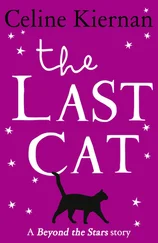There were sooooo many people in the izba. Tons and tons. Sweetie-pie Olenka was there. Sitting, blushing, her eyes lowered. But she did glance at Benedikt. Good. And Varvara Lukinishna was there, talking to Olenka, talking their girl talk. And Ksenia the Orphan. And Vasiuk the Earful.
Soon they'll announce it: time to start working. Good that he wasn't late. Being late doesn't matter, but people start to look and whisper: has he fallen ill, God forbid, God forbid. Knock on wood. True, as far back as Benedikt can remember, no one in their izba has ever fallen ill, knock on wood. Someone might get a scratchy throat or a headache-but that's not Illness, God forbid, God forbid. A finger might break, or you might get a black eye-that's not Illness either, God forbid, God forbid. Sometimes the hiccups get ahold of you-but that's not Illness, God forbid, God forbid. If the hiccups get you, you say three times:
Hiccup, Hiccup, Go see Jacob, From Jacob to John, From John on and on.
They'll go away. If you get a sty on your eye, then you need a stronger spell so it'll last. You blow three times, spit three times, stand still on one leg, grab your other leg with your hand, hold it, and God forbid don't fall. And say:
Sty, sty,
Fly out of my eye.
Strap, strap,
Don't fall in the trap.
Fig, fig,
You'll ne'er buy a pig.
Buy an ax and laugh
Chop the strap in half.
That sty will go right away. That isn't Illness.
And what it is, Illness, and when it comes, and what happens then-no one knows. They don't talk about it. And if they do, they whisper. And if they whisper, then only when Vasiuk the Earful isn't around.
Everyone knows that he eavesdrops. That's the way it is. He's got so many ears you can't count them: on his head, and under his head, and on his knees, and behind his knees, and even in his boots. All kinds: big, little, round, long, and just plain holes, and pink pipes, and something like smooth slits, with hair-all kinds. You ask him, "Vasiuk, what do you need so many ears for?"
"They aren't ears."
"Then what are they?"
Just for a laugh someone will stick a piece of bone or a rusht butt or some other kind of rubbish in one of his ears. But the main ears, the ones he eavesdrops with, grow under his arms. When he's at work, he spreads his elbows wide so it's easier to listen. Then he almost moans in frustration: what kind of secrets can he hear, when anyone can see that his elbows are spread, so he must be listening.
Varvara Lukinishna also has an affliction: she's a terrible sight, even with your eyes closed. Only one eye, not a hair on her head, and cockscombs growing all over it, waving back and forth. There's one growing from her eye too. It's called cock's fringe. But it isn't Illness either, God forbid, God forbid. It's a Consequence. She's a nice woman all the same, and she writes beautiful and clean. And if you run out of ink, she'll always give you some of hers.
And fringe isn't Illness, God forbid, God forbid. And the Saniturions don't need to come, no, no, no.
They hit the clapper: work time. Benedikt sat down at his table, arranged the candle, spat on his writing stick, raised his eyebrows, stretched out his neck, and looked at the scroll: what did he have to copy today? He got Fyodor Kuzmich's Tales.
"Once upon a time," Benedikt wrote, "there was a goose who laid a golden egg." There you go, another Consequence. Everyone has Consequences! Take Anfisa Terentevna, she had a lot of grief from her chickens last year. And what chickens they were: big, beautiful, choice. They laid black and marble eggs-you couldn't find better! Kvas made of those eggs went straight to your head. You drain a pitcher of that kvas, and right away- bam! You feel like showing your stuff. You look around-everyone's double. A girl passes by-and it seems like there's two of her. You shout, "Girls! Come on over and fool around with me" -and she runs off. You roll over with laughter! You look at Anfisa Terentevna-and there's two of her too. But don't try to fool around with her, or Polikarp Matveich will come out, and there'll be two of him, and that's no joke, one of him is scary enough.
How those chickens would sing in the summer when the twilight fell and the moon rose in the sky, the sunset smoldered, the dew began to gather, and the flowers smelled sweet! Fine young fellows and fair maids would sit out in the yard, munching pickled nuts, chewing firelings, sighing, or chatting and pinching each other. As soon as the first star rolled out in the sky, the chickens would begin to sing. At first they'd crackle like kindling, then you'd hear a trrrrr, trrrr, then croo-croo-croo, and then when they got going, they'd roll out such thundering roulades, it'd warm your heart, as if you were flying off somewhere, or running down a mountain, or remembering some strange poems by Fyodor Kuzmich, Glorybe:
On the black sky-words are inscribed- And magnificent eyes are blinded… And we fear not the mortal bed, And for us the lounge of passion isn't sweet. Writing-in sweat, working-in sweat! We know a different fervor: Light fire dancing over curls- A little breath-and inspiration!
And when autumn came with its rains and winds, all the fowl in the whole settlement headed south. Their owners would come out to see them off, sad and glum. The head hen would move in front, stick one leg out, flap her wings-and they'd all belt out a last, farewell song. They'd soar to the skies, take a turn around their homes, stretch out into a line, and fly off in pairs. You'd wave a kerchief, and sometimes the women would start wailing.
But then those chickens just went plain mad. They stopped flying, stopped singing, autumn passed, winter was just around the corner, all the other birds had headed south, and these crazies stayed put. Anfisa Terentevna shooed them with a switch broom, but they balked, ruffled their feathers, and even seemed to start talking like people. "Walk, talk, balk, whoo, whoo, whoo?" they asked, laughing at her. And they took to laying big, scary-looking white eggs. The poor woman near to lost her mind with fright. Benedikt rushed to help her and together they smothered those evil birds. They left one egg as a curiosity. Benedict showed it to Nikita Ivanich. The old man-he's never afraid of anything-cracked the egg open on the edge of a bowl, and inside-Lord save us!-there was a yellow ball that looked like it was floating in thick water, and there wasn't any kvas malt at all… Lord Almighty! The old Stoker jumped up and shouted "Where are the others?" in a terrible sort of voice. We reassured him, sat him down: Don't worry, Nikita Ivanich, we know, we're not children. We got rid of the whole foul flock, cleared the coop with birch smoke so nothing evil would sprout up, and brought Goga the Fool to cast a spell: North, south, east, west, under the green sea, under the flaming oak, under the hot stone, under the stinking goat-hey, hey, fly away fly; blow left, spit right, eins, zwei, drei. It's a strong spell, tried and true, it should last.
Nikita Ivanich sat slumped over the table. He squeezed his eyes shut, clutched his jaw, and just sat there. Then he asked what the chickens had eaten before they went mad. How do we know? He went to see Anfisa Terentevna to ask, and thought about it for a long time. And that yellow ball, the one in the egg -he fried it and ate it. Honest to God, he ate it!!! And nothing happened to him.
Come to think of it, he never eats like people do. He won't touch worrums. They made Mother sick too, for that matter. But Benedikt learned how to find them as a child. He'd be playing in the streams and puddles with the other kids-there are a lot of clay-filled streams in the town-and he'd always feel around in the water and find worrums. Worrums are blind, stupid. You can catch a couple of dozen, put 'em on a stick, dry 'em out, and then pound 'em into a powder. They're so salty! The best flavoring for mouse soup. Father praised Benedikt, and he caught worrums himself, but Mother always made a face and pushed them away. Once Benedikt gave Nikita Ivanich a whole stringful. They just hung there on that string, the old man never touched them. A neighbor dropped by to ask for some fire and couldn't believe it: valuable goods were going to waste. Nikita Ivanich just gave them to her, each and every one of them. And it's so much work to catch them, you have to sift through a lot of mud till you feel the worrum, and then it wiggles around, nips at your fingers. Just try digging for them yourself! You won't go giving them away to neighbors.
Читать дальше












